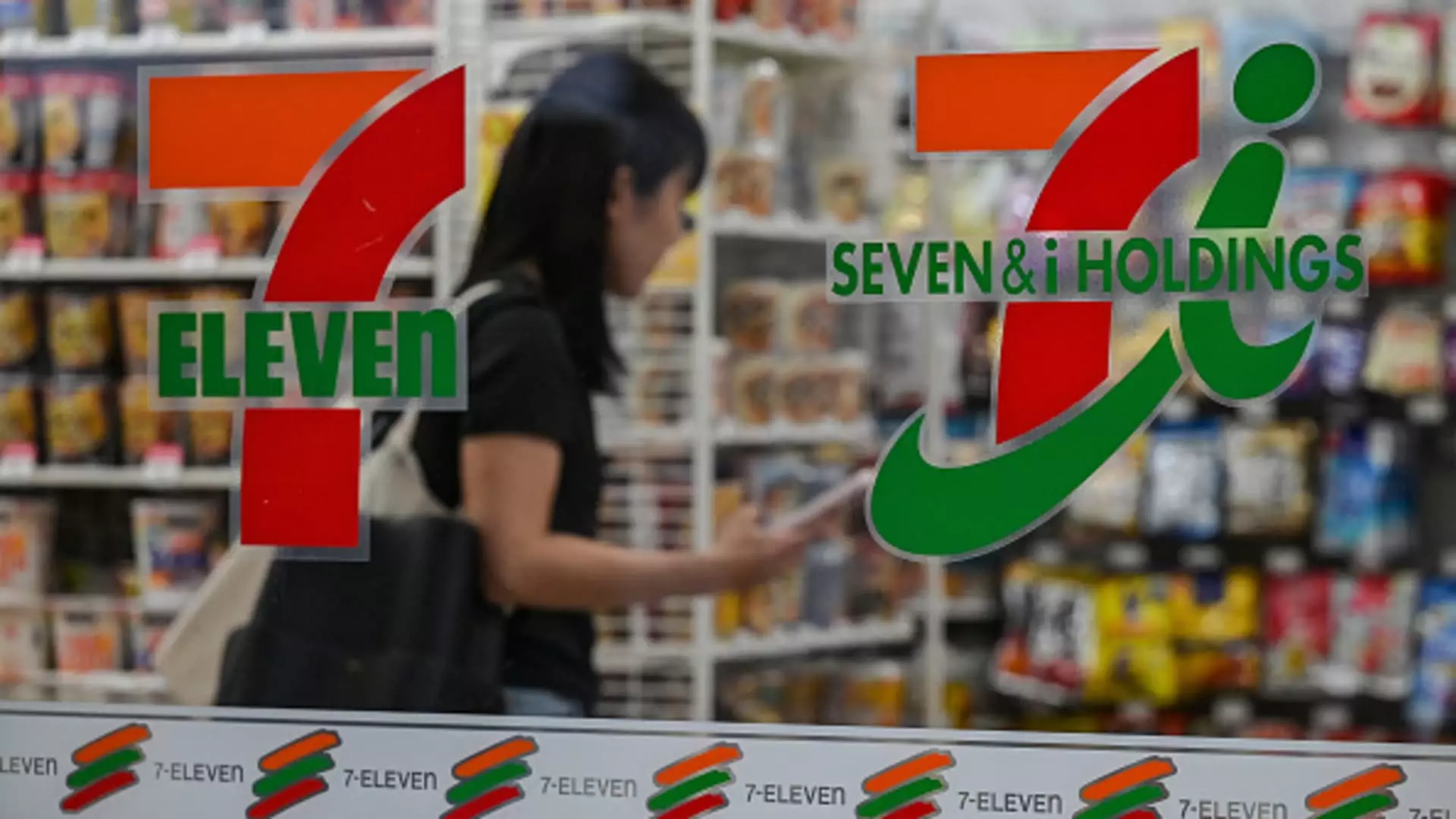Seven & i Holdings, the prominent Japanese convenience store retailer, is currently grappling with significant financial turbulence. As the company approaches the fiscal year concluding February 2025, it has made the startling decision to revise its earnings forecasts drastically. Originally anticipating a net income of 293 billion yen, the company’s latest projection sits at a mere 163 billion yen, marking an astonishing 44.4% reduction. This recalibration of expectations comes on the heels of the company reporting a first-half net profit of 52.24 billion yen against a revenue backdrop of 6.04 trillion yen. Although sales figures surpassed forecasts, the profits trailed behind the previously set expectation of 111 billion yen.
The retrenchment in profit expectations appears to be linked to a notable decline in customer footfall at its international outlets. This drop reflects a broader trend wherein consumers are adopting a more cautious approach to spending, a phenomenon observed across various retail segments. Compounding these challenges is a 45.88 billion yen charge attributed to the spinoff of its Ito-Yokado Online Supermarket, which further shines a light on the underlying pressure the company is facing.
In a bid to streamline operations and focus on core competencies, Seven & i Holdings is advancing with comprehensive restructuring initiatives. The company has announced its intent to spin off non-essential divisions into a standalone subsidiary, a maneuver designed to consolidate its portfolio amidst mounting investor pressure. This restructuring will encompass a substantial 31 units, reflecting a strategic shift aimed at fortifying the company’s fundamentals against hostile acquisition efforts.
The overarching rationale behind these changes is the heightened scrutiny from shareholders and investors, coupled with an aggressive takeover proposal from Canadian retail giant Alimentation Couche-Tard (ACT). By establishing an intermediate holding company focused on its supermarket, specialty store, and other ventures, Seven & i aims to enhance operational efficiency and safeguard its market position.
The potential for ACT’s acquisition bid to escalate into a hostile takeover has become a focal point of discussion among market analysts. In September, Seven & i Holdings firmly rejected ACT’s initial offer of $14.86 per share, citing the proposal as contrary to the interests of its stakeholders while raising concerns regarding U.S. antitrust regulations. Following this rejection, the company sought and secured a designation as a “core business” under Japan’s Foreign Exchange and Foreign Trade Act, which poses additional barriers for foreign entities seeking to acquire significant stakes.
Recently, ACT has been reported to have revised its offer, increasing it by approximately 20% to $18.19 per share, which would place the valuation of Seven & i at around 7 trillion yen. If this acquisition were to materialize, it would stand as the largest foreign takeover in Japan’s history. Experts suggest that the prospect of an outright hostile takeover may not be entirely improbable, particularly given past instances where Japanese companies have employed defensive measures such as “poison pills” to thwart unsolicited bids.
The market’s response to ACT’s maneuvering has been notably volatile. Shares of Seven & i have experienced a remarkable 33% surge since the Canadian company’s interest became public in August, reflecting investors’ speculation surrounding the outcome of the proposed acquisition. Trading at an impressive 2,325 Japanese yen as of Thursday’s close, the stock price underscores the complexity of the situation facing Seven & i, as it balances the potential benefits of a lucrative buyout against the need to maintain control over its operations.
Investor sentiment remains a double-edged sword. On one hand, shareholders have expressed increasing frustration over the perceived stagnation in negotiations following ACT’s initial bid. On the other, the potential for a significantly enhanced acquisition offer raises the profile of Seven & i as a strategic asset. Analysts such as Jesper Koll have noted that while the financial terms of the offer appear appealing, the broader implications for Seven & i’s long-term operational strategy and market positioning must be carefully evaluated.
Seven & i Holdings finds itself at a pivotal crossroads, faced with critical decisions that could redefine its trajectory in the highly competitive retail landscape. The combination of restructuring efforts, fluctuating earnings forecasts, and the looming threat of a hostile takeover presents a multifaceted challenge that necessitates astute leadership and strategic agility. As the company navigates this transitional phase, both its stakeholders and the broader market will be closely monitoring developments, eager to see how the retail giant aligns its immediate actions with its long-term vision.

